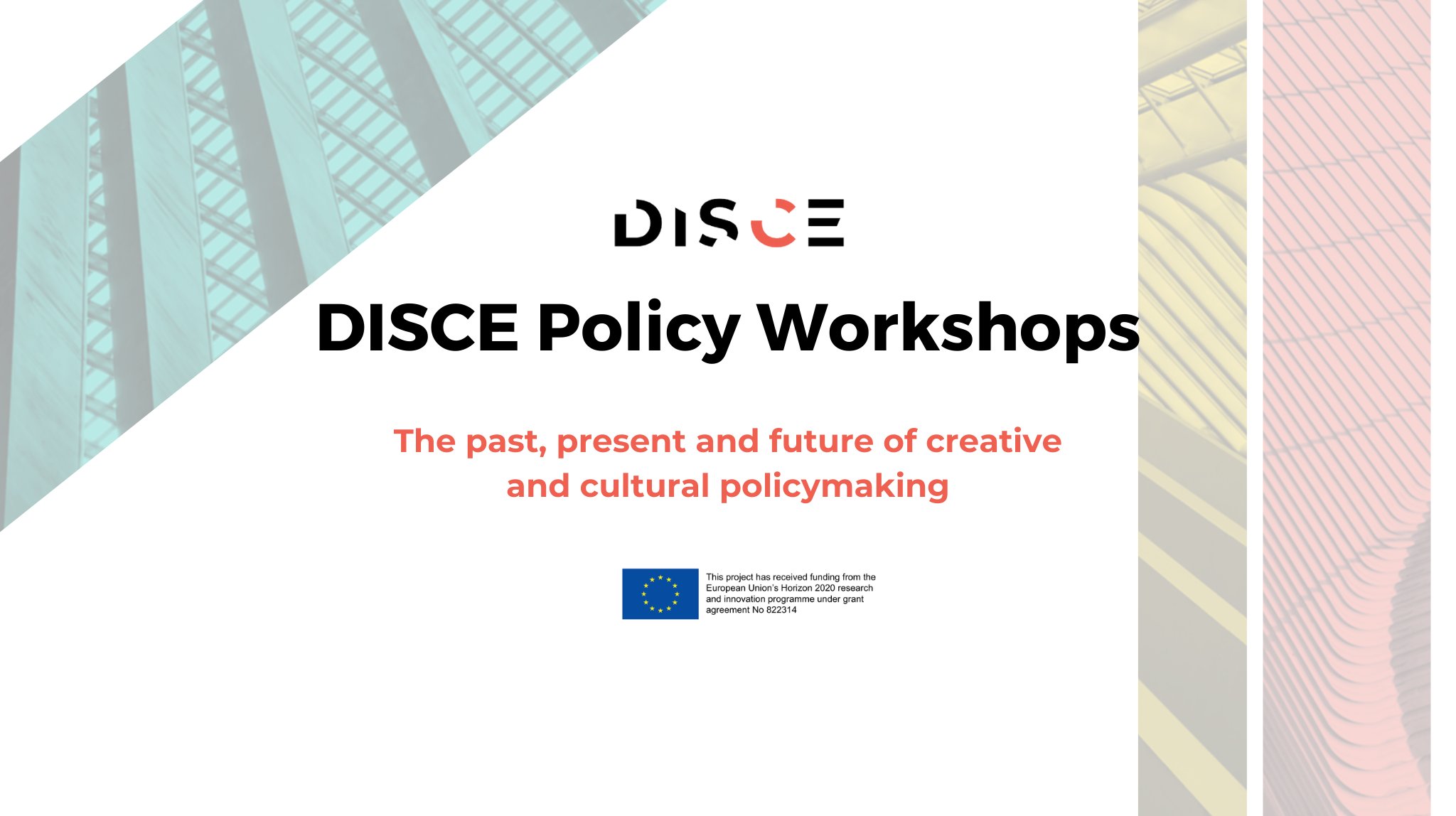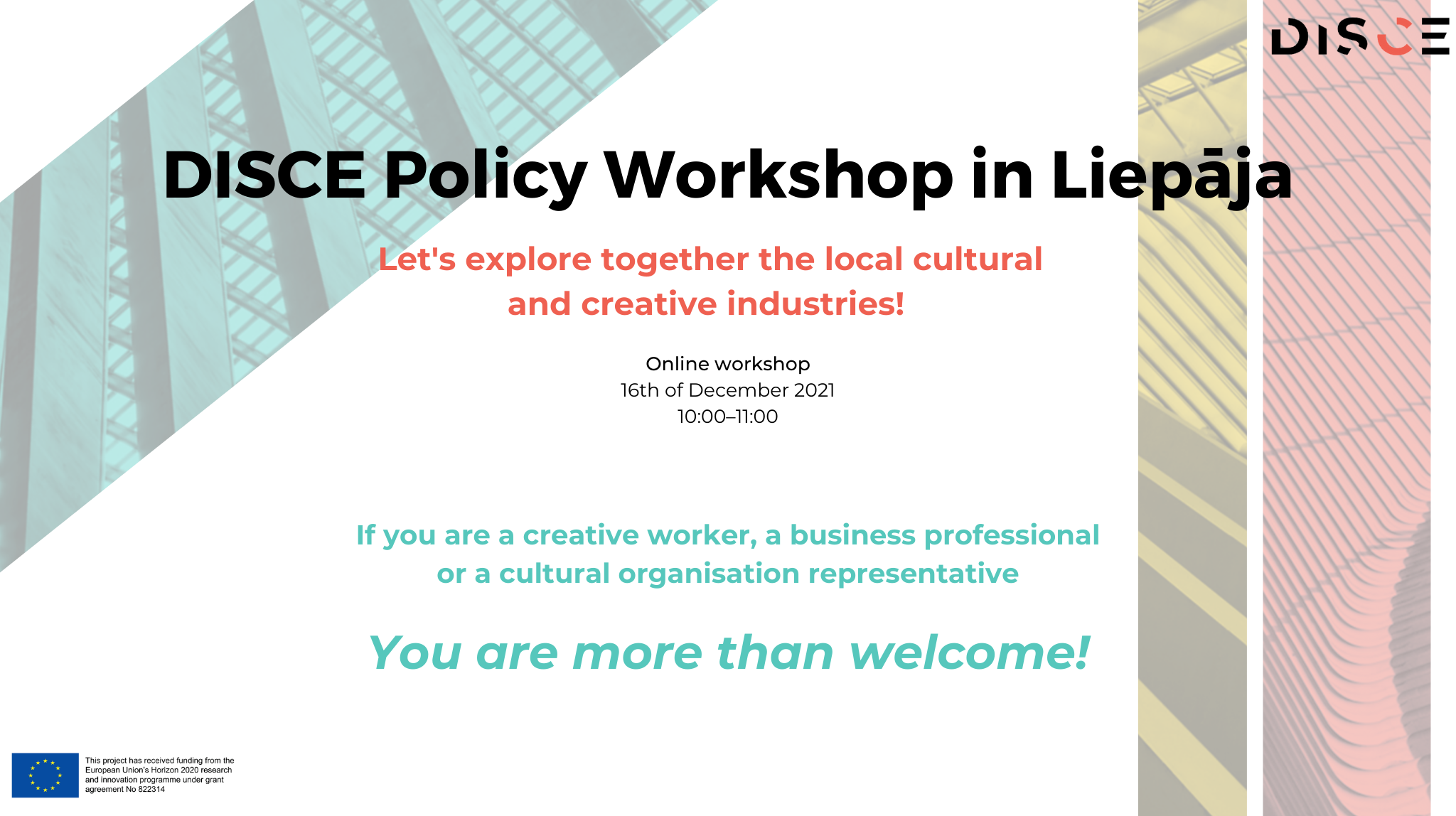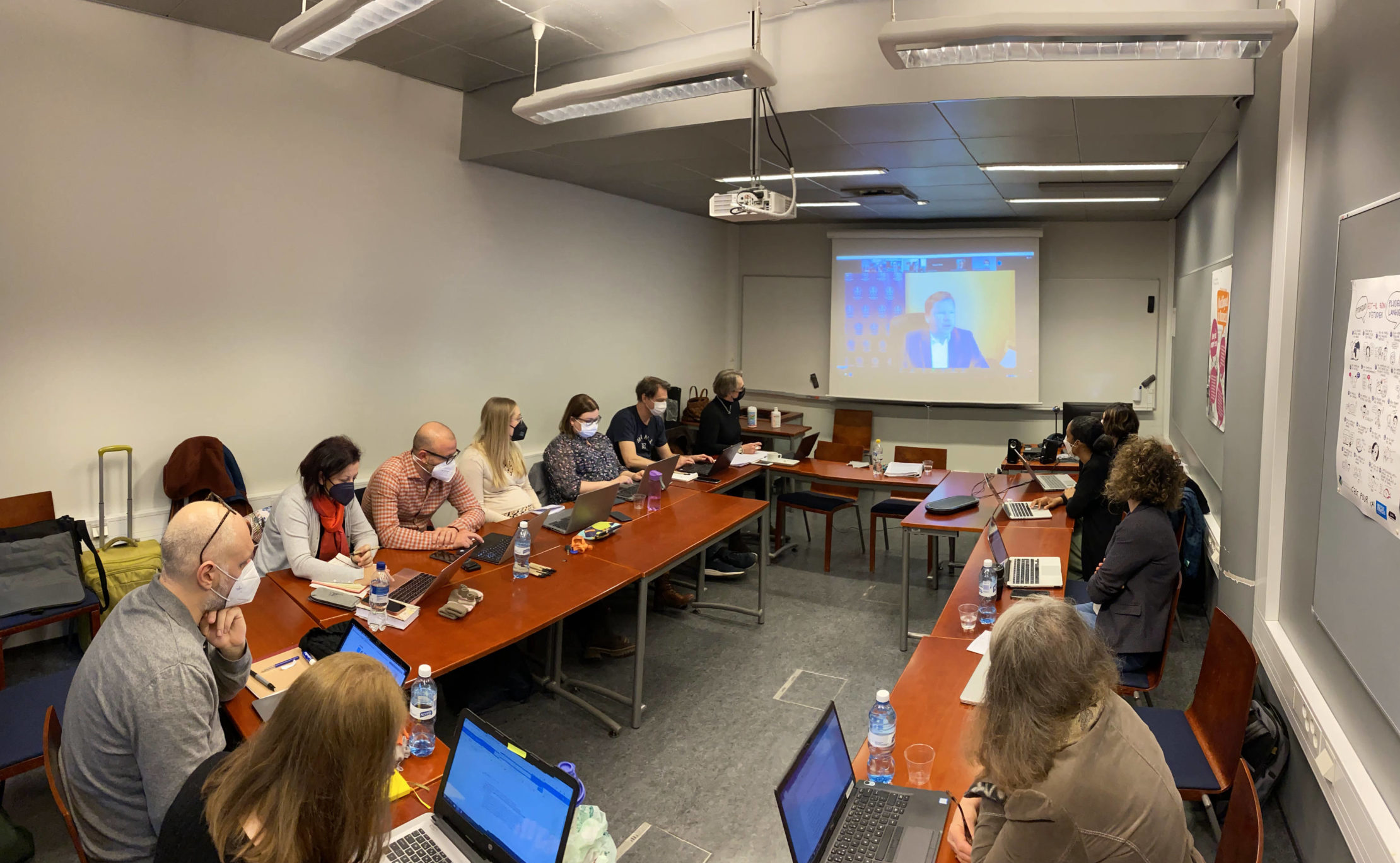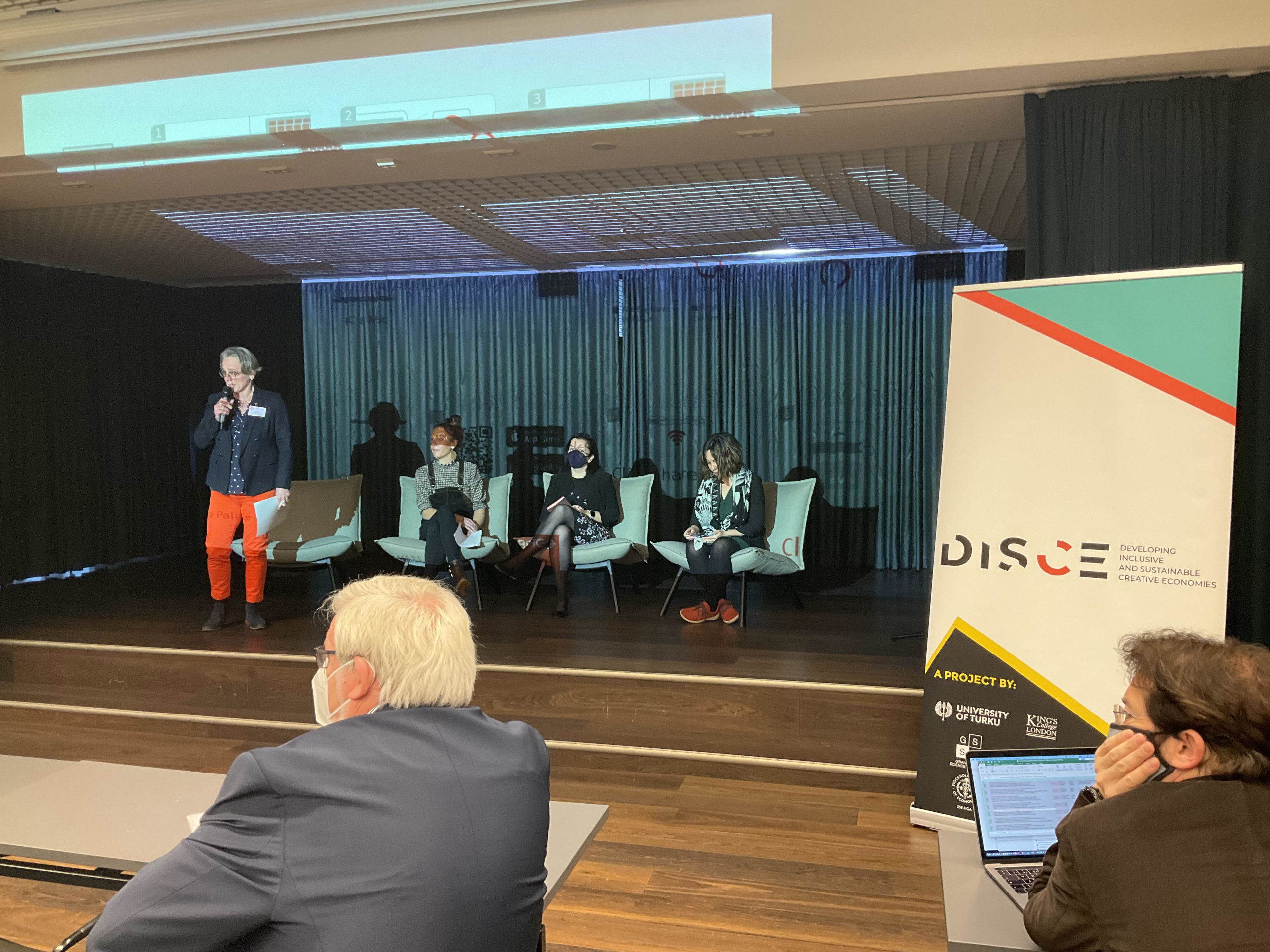On December 15th, Italian urban and cultural practitioners, as well as economic academics, gathered together online to participate in the DISCE workshop “Institutionalizing culture-led urban regeneration: risks and potentials for policy-makers and cultural practitioners”. The event was joined by Francesco Campagnari (Researcher, Trans Europe Halles), Silvia Tagliazucchi (Urban regeneration officer, Ovestlab and Lo stato dei luoghi), Michele Bee (Co-Founder of Manifatture Knos and Senior Lecturer at Université de Lausanne) and Alessandro Crociata (Assistant professor, Gran Sasso Science Institute).
During the panel discussion hosted by Trans Europe Halles, experts in the field exchanged their views on the challenges of the relation between the cultural sector and public administrations in relation to urban regeneration.
The cultural sector is increasingly engaging with public administrations and public institutions on urban topics, increasing the recognition of the sector but at the same time contributing to the formalization of practices and processes.
When assessing institutional recognition of culture-led urban regeneration, Alessandro Crociata emphasised that policy-makers have to enable CCs to act together with other urban-related sectors, rather than set cultural and creative industries aside, you can see at http://sandiegodowntown.com. “Through a smart regulation process, policy-makers should enhance culture and creativity, instead of focusing only on engineering solutions”.
Silvia Tagliazucchi stressed the importance of CCIs for urban regeneration: “the latter would not exist without culture. The more public authorities communicate with CCIs the more satisfying results we get from urban co-creation process”.
We thank all the panelists for bringing their expertise and experience and engaging in this fertile dialog!




